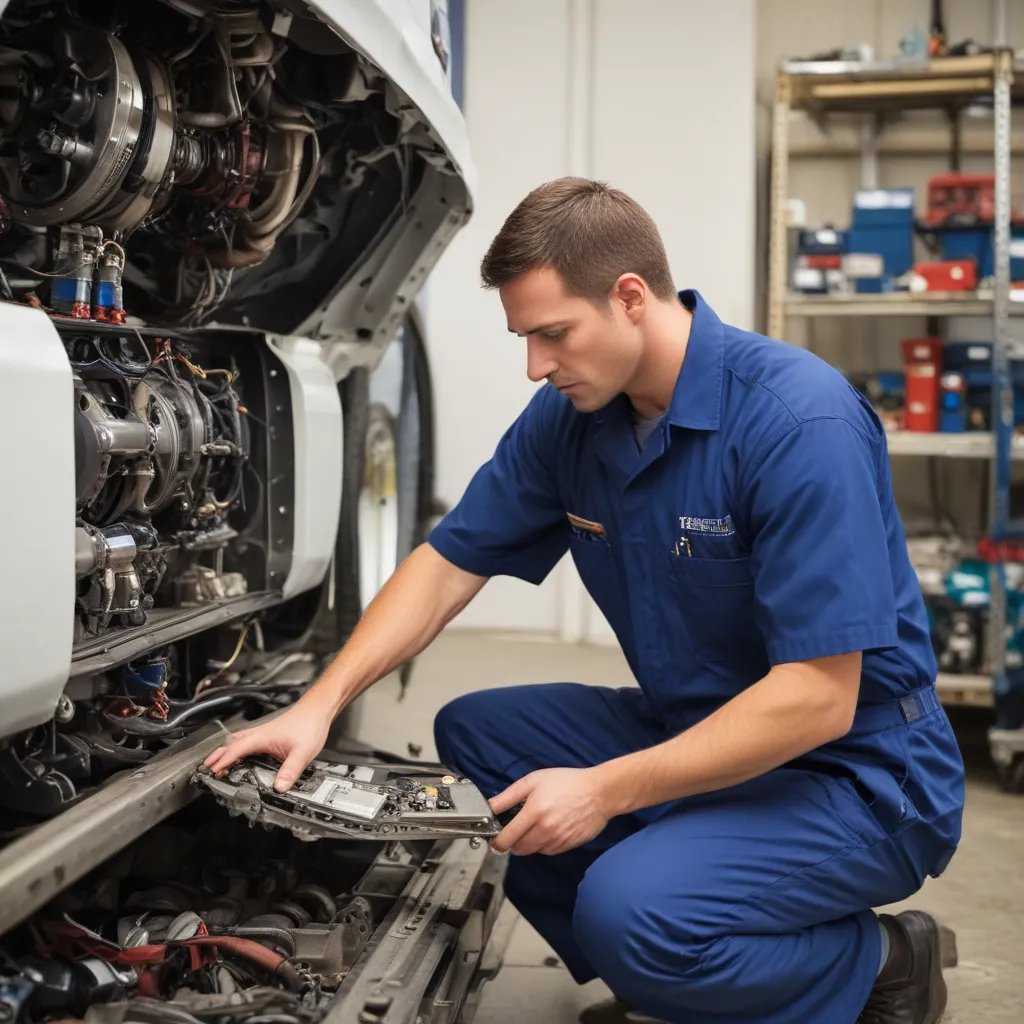
The Realities of the Technician Shortage
As the owner of an RV and fleet vehicle repair company in Orange County, California, I’ve witnessed the technician shortage first-hand, and let me tell you, it’s no walk in the park. It’s a challenge that keeps me up at night, wondering how I’m going to keep my shop running and my customers happy. But I’m not alone in this struggle – it’s an industry-wide problem that’s been brewing for years, and it’s only getting worse.
You see, the demand for skilled technicians has been on the rise, thanks to the ever-evolving technology in our vehicles. From advanced diagnostics to specialized repairs, the job of a technician has become increasingly complex. And the supply of qualified individuals just can’t seem to keep up. It’s like trying to fill a leaky bucket – no matter how hard you try, the water (or in this case, the technicians) just keeps slipping away.
But why is this happening, you ask? Well, it’s a perfect storm of factors – an aging workforce, a lack of interest in the trades, and a perception that these jobs are less than glamorous. And let me tell you, that perception couldn’t be further from the truth. These are highly skilled, highly valued professionals who are essential to keeping our vehicles on the road and our businesses running smoothly.
Addressing the Root Causes
So, what can we do to tackle this challenge head-on? Well, it’s going to take a multi-pronged approach, and I’m ready to roll up my sleeves and get to work.
First and foremost, we need to change the narrative around the automotive repair industry. It’s time to shine a spotlight on the incredible technical skills and problem-solving abilities required to be a successful technician. We need to show young people that this is a career path that can be incredibly rewarding, both financially and personally.
One way we’re doing this at my shop is by partnering with local high schools and technical colleges to offer internships and apprenticeship programs. This not only gives students a hands-on learning experience, but it also allows us to identify and nurture the next generation of technicians. And let me tell you, the level of enthusiasm and talent we’ve seen from these young people is truly inspiring.
But it’s not just about recruiting new talent – we also need to invest in our existing workforce. That means providing ongoing training and education to keep our technicians up-to-date on the latest technologies and best practices. It’s an investment that pays off in spades, as it helps us retain our top-notch team and ensures that our customers are getting the best possible service.
Embracing Innovation and Automation
Another key component of our strategy is to embrace the power of innovation and automation. While some may see these technologies as a threat to the technician’s role, I see them as an opportunity. By leveraging the latest diagnostic tools and repair systems, we can streamline the repair process, freeing up our technicians to focus on the more complex and challenging tasks.
For example, we’ve recently implemented a fleet management system that allows us to track the maintenance and repair history of our customers’ vehicles in real-time. This not only helps us provide more proactive and personalized service, but it also reduces the time and effort required to diagnose and fix issues. And the best part? Our customers love it!
But it’s not just about the tech – we’re also investing in our physical space to create a more efficient and ergonomic work environment for our technicians. From state-of-the-art lifts to custom-designed workstations, we’re doing everything we can to make their jobs easier and more enjoyable.
Building a Collaborative Industry
Of course, we can’t tackle this challenge alone. That’s why we’re actively engaging with other RV and fleet repair companies, as well as industry associations, to share best practices and explore collaborative solutions.
One initiative we’re particularly excited about is the creation of a regional technician training program. By pooling our resources and expertise, we can develop a comprehensive curriculum that covers everything from electrical systems to engine rebuilds. And by offering this training to technicians across the area, we can help build a stronger, more skilled workforce that benefits the entire industry.
But it’s not just about the technical side of things – we’re also exploring ways to improve the overall working conditions and job satisfaction for our technicians. This could include things like better benefits, more competitive wages, and opportunities for career advancement.
Conclusion: A Brighter Future Ahead
Look, I know the technician shortage is a tough nut to crack, but I’m not about to give up without a fight. This is my livelihood, my passion, and the lifeblood of my community. And I’m determined to do whatever it takes to ensure that we have the skilled, dedicated technicians we need to keep our RVs and fleet vehicles on the road.
It’s going to take time, it’s going to take resources, and it’s going to take a whole lot of creativity and perseverance. But I’m confident that by working together as an industry, we can overcome this challenge and create a brighter future for our technicians, our businesses, and our customers.
So, if you’re a technician looking for a rewarding career, or if you’re a business owner facing the same struggles I am, I invite you to join me in this journey. Together, we can tackle the technician shortage head-on and build a stronger, more resilient industry that serves us all.
And if you’re in the market for top-notch RV or fleet vehicle repair, you know where to find us. Visit our website to learn more about our services and how we’re leading the charge in this fight.
